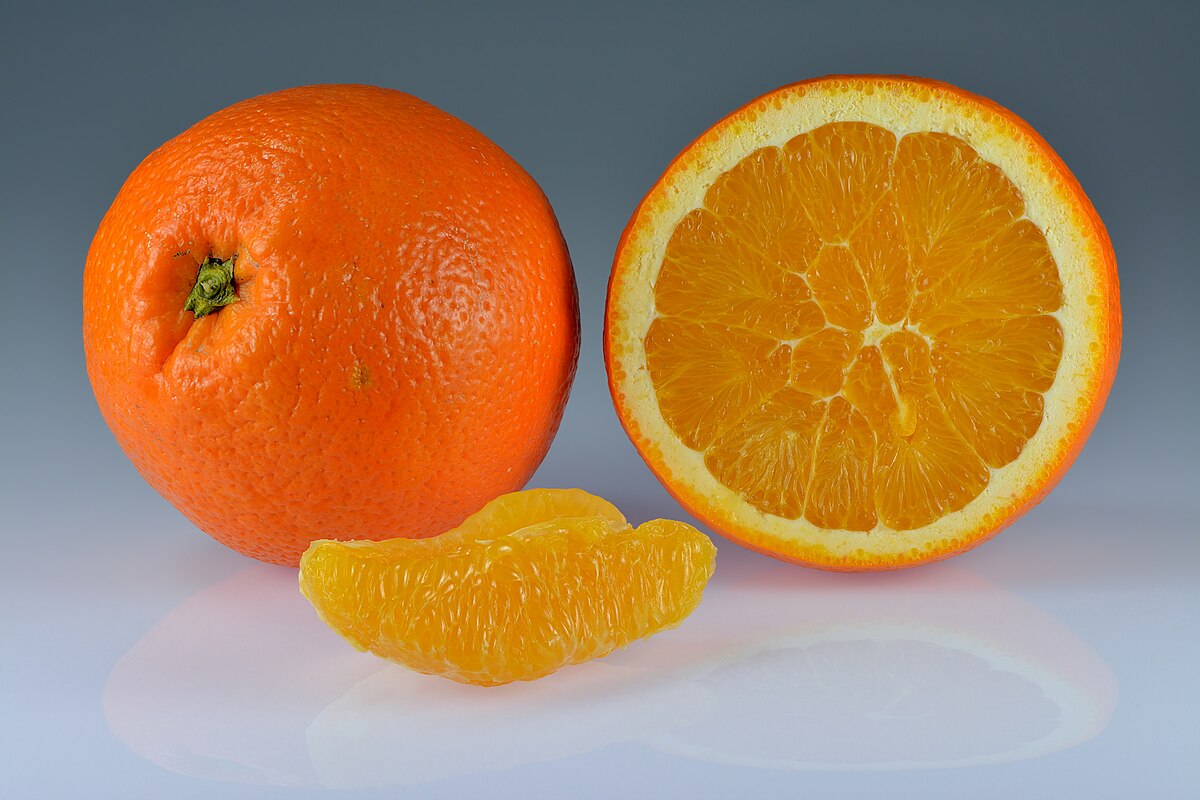- This topic is empty.
- AuthorPosts
- February 16, 2025 at 12:23 am #566306

The orange (Citrus sinensis) is one of the most widely consumed and economically significant fruits globally.
Known for its sweet and tangy taste, high nutritional value, and versatility, the orange plays an important role in both human diets and agricultural economies.
The fruit’s popularity extends across a variety of uses, including fresh consumption, juice production, and its incorporation into various food products. In this preliminary study, we will explore the value of the orange fruit in terms of its nutritional benefits, economic impact, and cultural significance.
1. Nutritional Value of Oranges
Oranges are renowned for their high vitamin C content, which is crucial for boosting the immune system, promoting skin health, and acting as an antioxidant. In addition to vitamin C, oranges are a rich source of dietary fiber, potassium, folate, and several other vitamins and minerals that contribute to overall health.
The fruit’s natural sugars provide a quick energy boost, while its fiber content aids in digestion and helps regulate blood sugar levels.
Oranges are also low in calories, making them an ideal snack for those seeking to maintain a balanced diet. The combination of these nutrients makes oranges not only delicious but also an essential part of a healthy diet.
2. Economic Importance of the Orange Industry
The orange industry represents a substantial portion of the global agricultural economy, with millions of tons of fruit harvested annually. Countries like Brazil, the United States, India, and China are major producers of oranges, with a significant portion of the fruit being exported to international markets.
Oranges are not only consumed fresh but are also a primary ingredient in the production of orange juice, a multi-billion-dollar industry worldwide. The economic value of oranges extends beyond just fruit sales, impacting other sectors like packaging, transportation, and food processing.
Furthermore, orange cultivation provides employment to millions of farmers, harvesters, and workers involved in the supply chain, contributing significantly to rural economies.
3. Oranges in Food and Beverage Production
One of the key contributions of the orange fruit is its use in the food and beverage industry. Orange juice is a staple in households and restaurants around the world, known for its refreshing taste and health benefits.
Beyond juice, oranges are incorporated into a wide range of products such as jams, marmalades, desserts, and flavored beverages. The zest and juice of the fruit are also used in the creation of sauces, dressings, and marinades, adding unique flavors to culinary dishes.
The versatility of oranges in food production has made them a key ingredient in both traditional and contemporary cuisine across various cultures.
4. Environmental Impact and Sustainability of Orange Farming
Orange farming, like any agricultural industry, has environmental considerations. The cultivation of oranges requires substantial water, land, and energy resources, which can impact local ecosystems if not managed sustainably.
The use of pesticides and fertilizers in conventional orange farming also raises concerns about soil health and water contamination. However, there is a growing shift toward sustainable farming practices in the orange industry, with many farmers adopting organic and environmentally friendly methods of cultivation.
These practices aim to reduce chemical use, improve soil quality, and promote biodiversity, ensuring that the environmental impact of orange farming is minimized while still meeting global demand for the fruit.
5. Cultural and Medicinal Significance of Oranges
Oranges hold significant cultural and medicinal value in various societies. In many cultures, the orange is a symbol of prosperity, good luck, and health. In addition to their nutritional benefits, oranges have been used in traditional medicine for their purported healing properties, including their ability to treat colds, improve digestion, and reduce inflammation.
The fruit’s essential oils, extracted from the peel, are also utilized in aromatherapy for their calming and mood-enhancing effects. Beyond their practical uses, oranges have found their way into rituals, festivals, and even art, reflecting their importance in human culture.
The preliminary study of the orange (Citrus sinensis) fruit value reveals that this beloved fruit offers a wealth of benefits, ranging from its rich nutritional profile to its substantial economic impact. Whether consumed fresh, juiced, or incorporated into a variety of food products, oranges play a central role in the global agricultural and food industries.
The fruit’s environmental sustainability and its cultural and medicinal significance further enhance its value. As research into the broader impacts of orange cultivation and consumption continues, it is clear that the orange holds a prominent place in both the agricultural and societal spheres.
Read Also: Complete Practical Guide on Orange Farming
- AuthorPosts
- You must be logged in to reply to this topic.

